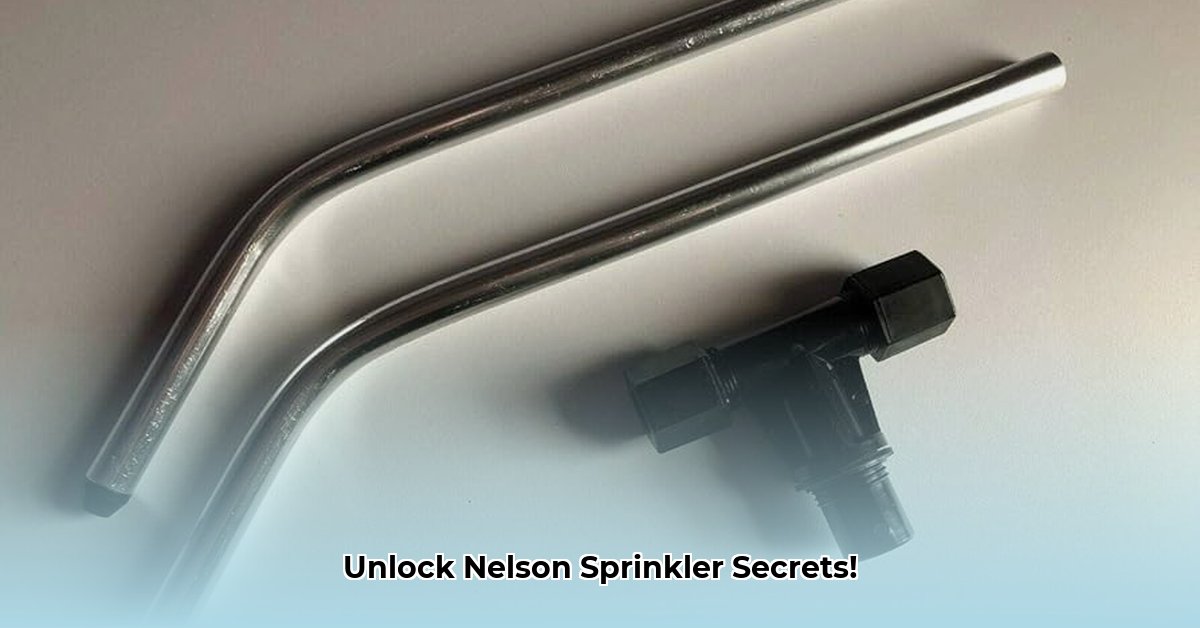
Understanding Your Irrigation System's Needs: A Troubleshooting Approach
Before ordering parts, diagnose the problem. Is a sprinkler head malfunctioning? Is there a leak? A clear understanding is crucial. Take photos to aid the process. Knowing precisely what's broken streamlines the part-finding process. Remember to note your system's model number (often found on a sticker) – this is essential for accurate part identification. Finally, establish a budget to manage expenses effectively.
Locating Nelson Tractor Sprinkler Parts: Exploring Your Options
Several avenues exist for sourcing Nelson parts. Online retailers (like Amazon and agricultural supply websites) offer convenience and often competitive pricing; however, always verify reviews and look for recurring issues mentioned by multiple users. Local dealers and agricultural supply stores offer the benefits of personalized advice and readily available stock, though prices may be higher. Contacting Nelson Irrigation directly is best for less common or older parts, but expect longer lead times.
Choosing the Right Vendor: A Comparative Analysis
- Online Retailers: Wide selection, competitive pricing, but potential for longer shipping times and quality concerns.
- Local Dealers: Immediate access to parts, expert advice, higher prices.
- Nelson Irrigation: Direct source for less-common parts, longest lead times, guaranteed authenticity.
Which option best suits your needs depends on urgency, budget, and the complexity of the repair.
A Comprehensive Checklist Before Ordering: Avoiding Costly Mistakes
Before purchasing, meticulously verify compatibility: a single incorrect digit can render a part useless. Thoroughly examine user reviews – long-term performance feedback is especially valuable. Compare prices across different vendors, including shipping costs. Finally, understand the seller's warranty and return policy; this safeguards against faulty parts. A quick check now will save you significant time and expenses later.
Preventative Maintenance: Extending the Lifespan of Your Irrigation System
Proactive maintenance significantly reduces repair costs and maximizes your system's lifespan. Regular inspections (checking for leaks, cracks, and wear) are critical. Cleaning is crucial – clogged filters and nozzles drastically reduce efficiency. Don't overlook lubrication—consult your system's manual for recommended lubricants and schedules. Proper storage during the off-season protects against elemental damage. According to agricultural engineer Dr. Emily Carter of the University of California, Davis, "A preventative maintenance program can extend the lifespan of irrigation systems by up to 30%."
Troubleshooting Common Problems: Quick Fixes and Solutions
Many problems are easily addressed. Low water pressure typically indicates clogged filters or worn nozzles; check these first. Uneven water distribution suggests faulty sprinkler heads, clogged emitters, or issues further upstream. Leaks require careful inspection of connections, fittings, and pipes; replacing worn-out seals often resolves minor leaks. Remember, early detection minimizes damage and cost.
Choosing Sustainable Options: Prioritizing Eco-Friendly Practices
Sustainable irrigation is good for the planet and your bottom line. Prioritize durable, long-lasting parts; this reduces waste in the long run. Look for parts made from recycled materials whenever possible. Choose parts designed to improve water efficiency, minimizing waste and lowering operating costs. "Selecting sustainable parts offers significant long-term environmental and economic benefits," states John Miller, CEO of Green Irrigation Solutions.
The Future of Irrigation Technology: Staying Ahead of the Curve
The industry is constantly evolving. Expect increasing automation, along with precision technologies and smart irrigation systems, which monitor conditions in real-time to optimize water delivery. Keeping up with these advancements ensures your farm remains efficient and profitable. Investing in the future of irrigation technology is an investment in the sustainability of your farm.
Long-Term Investment: Prioritizing Quality Parts for Lasting Value
While high-quality parts have a steeper upfront cost, the long-term benefits outweigh initial expense. Reduced downtime, fewer repairs, and improved efficiency translate to cost savings. This investment safeguards your farm's productivity and protects your bottom line.
Key Takeaways:
- Regular maintenance prevents costly repairs.
- Accurate part identification is crucial for efficient repairs.
- Sourcing sustainable parts minimizes environmental impact.
- Preventative maintenance and regular system audits are key to long-term cost-effectiveness.
- Investing in quality parts yields significant long-term returns.
How to Source Sustainable Materials for Nelson Irrigation Parts: A Detailed Guide
Finding sustainable Nelson parts involves a multi-pronged approach. Begin with Nelson Irrigation directly to ensure authenticity and quality. Explore authorized dealers for expert advice and local stock. Online marketplaces offer convenience but require careful vetting. A proactive approach, including repairs and reuse, minimizes waste and promotes responsible sourcing. Dr. Anya Sharma, a sustainability expert at Cornell University, emphasizes, "Sustainable sourcing is not just environmentally responsible; it's also a demonstrably smart economic strategy."
Prioritizing Sustainable Choices: A Decision-Making Framework
- Durable Materials: Choose parts made to last, reducing replacements.
- Recycled Content: Opt for parts incorporating recycled materials.
- Responsible Manufacturers: Support companies with strong sustainability commitments.
- Minimize Packaging: Select sellers with eco-friendly packaging practices.
- Repair and Reuse: Extend the life of existing parts whenever feasible.
Regular system audits, adoption of smart irrigation technologies, and implementation of effective water conservation techniques are essential for long-term sustainable irrigation practices. Investing in sustainable parts and practices secures your farm's future.